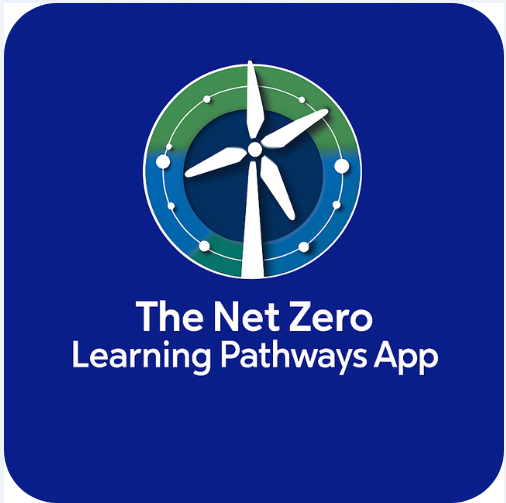Executive Masterclass in Strategic Corporate Sustainability (Certificate)
-
Format:
Online (Selfpaced) -
Level: Intermediate (Strategy & tactical)
-
Access:
Web portal & Mobile App -
Study time: 60 hours
-
Award:
Digitally Verifiable Cert.
Write your awesome label here.
What You’ll Learn:
Module 1: Advanced introduction: ESG & Sustainability transitions
This module provides a deep dive into the evolution of ESG and sustainability concepts from the 1970s to the present. Participants will explore the development of key principles, identify similarities and differences between competing concepts, and examine the underlying science and interdependencies that shape ESG and sustainability today. The module further distinguishes sustainability transitions from traditional industrial shifts, equipping participants with the tools to apply socio-technical frameworks to assess national and global sustainability trends. Finally, participants will analyze how various forces and enablers drive sustainability transitions, evaluating current and future impacts, risks, and opportunities to inform strategic business decisions.
- Lesson 1: Sustainability concept development and science
- Lesson 2: Understanding sustainability transitions
- Lesson 3: Drivers and enablers of sustainability transitions
Module 2: Practices and business model innovations for corporate sustainability
This module offers a comprehensive exploration of strategies to advance corporate sustainability action. You will gain a profound understanding of the principles and practices of the Circular Economy; Sustainable Procurement; Value-based investment strategies; and corporate responsibility initiatives. You will also delve into the broad application of diversity, equity, and inclusion practices to boost corporate performance and contribute to various sustainable development goals.
- Lesson 4: Circular Economy – Principles, practices, material flow analysis, and life cycle assessment
- Lesson 5: Sustainable Procurement
- Lesson 6: Diversity, Equity, and Inclusion in Business Strategy
- Lesson 7: Corporate Social Responsibility
Module 3: Developing impactful sustainability strategies (Moving from awareness to action)
Elaborates the systematic process of creating a comprehensive and actionable sustainability strategy that aligns with your organization's core values and business objectives. It covers the key steps including conducting a baseline assessment to understand the current sustainability performance and opportunities, setting a clear vision along with ambitious yet achievable goals and targets, and seamlessly integrating these goals into existing corporate policies, plans, and processes. You will also learn the essential qualities of a robust sustainability strategy, ensuring it is holistic, adaptable, and impactful.
- Lesson 8: Conducting a baseline assessment: Steps, methodologies, and guidelines
- Lesson 9: Setting an optimal sustainability vision, goals, and targets
- Lesson 10: Executing corporate sustainability visions and goals effectively
- Lesson 11: Qualities of a good corporate sustainability strategy
Module 4: Measuring and communicating corporate sustainability impact
The module explores the global sustainability accounting and reporting frameworks, product and process certifications, and third-party assurances that ensure the credibility and integrity of sustainability efforts. You will gain insights into how digital technologies like AI, blockchain, and data analytics can enhance the efficiency and accuracy of sustainability measurement and reporting. Additionally, it highlights best practices in developing compelling sustainability narratives and engaging stakeholders effectively while addressing greenwashing risks and aligning with global reporting trends.
- Lesson 12: Measuring sustainability and ESG impact and performance indicators
- Lesson 13: Sustainability Reporting and Disclosure: Frameworks, Standards, and Interpretation
- Lesson 14: Sustainability Certifications, Standards, Ratings, and Third-Party Assurances
- Lesson 15: Leveraging Digital Tools and Systems for Effective Reporting Assurances
- Lesson 16: Greenwashing and Best Practices in Sustainability Communication and Stakeholder Engagement
Module 5: Knowledge check and application
- Lesson 17: Recap of lessons 1-16 and connecting dots
- Final Test- Knowledge check
- Final practice task - Knowledge application
- Course Evaluation and Certificate of Completion
A convenient study for your dynamic needs
This course is 100% online and self-paced, includes interactive lessons, latest eBooks, videos, articles, and additional resources based on your learning needs.
Our Virtual Learning Support Team is readily available. You will be assigned a dedicated Learning Assistant based on your time zone to ensure your study is as smooth as possible.
After attaining your certificate, your access to course materials, e-Library, and expert led webinars remains for 18 months, with an ongoing closed course community for knowledge exchange.
Our Virtual Learning Support Team is readily available. You will be assigned a dedicated Learning Assistant based on your time zone to ensure your study is as smooth as possible.
After attaining your certificate, your access to course materials, e-Library, and expert led webinars remains for 18 months, with an ongoing closed course community for knowledge exchange.
Limited Availability
OFFER
60% OFF

